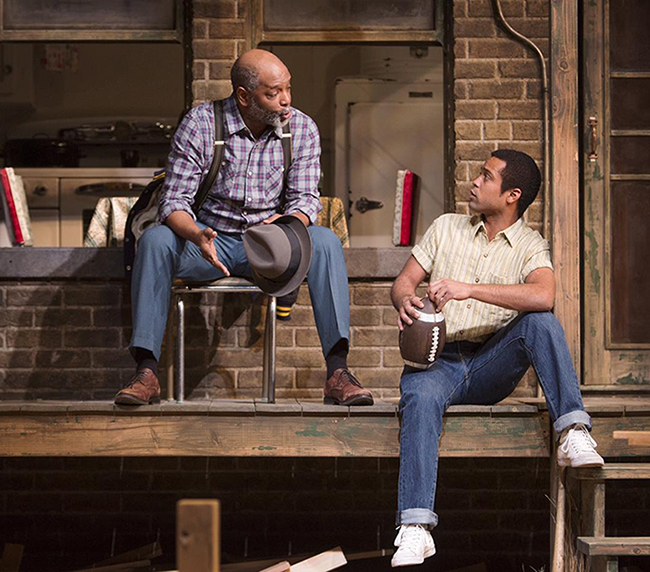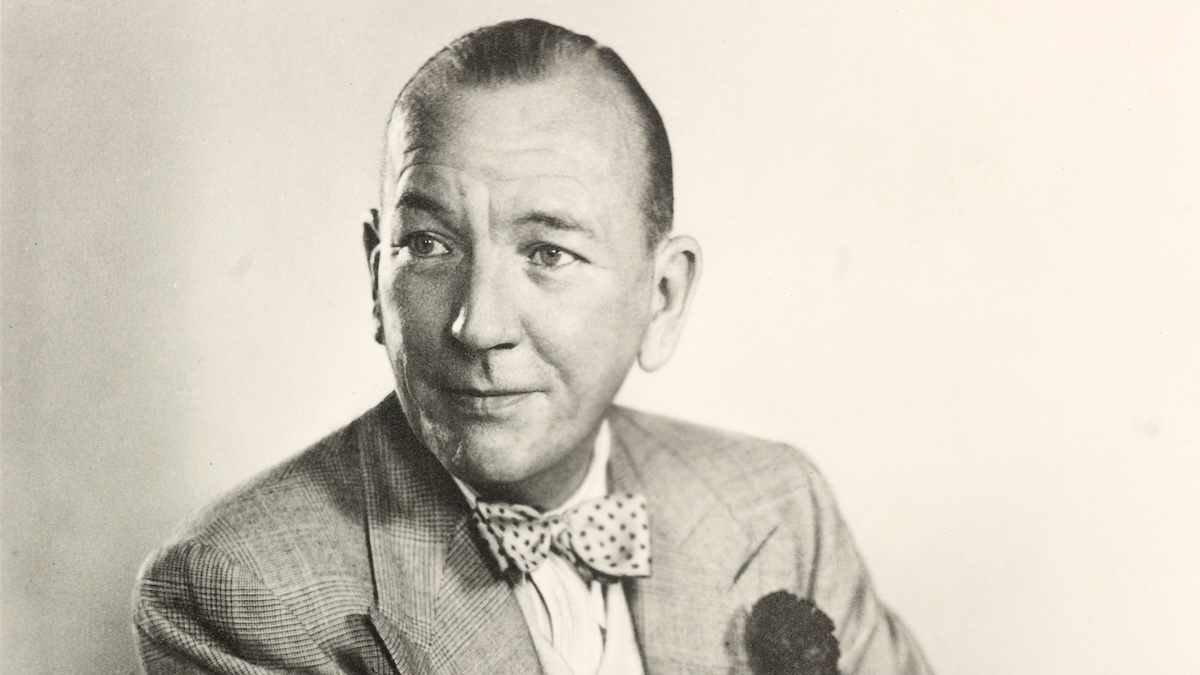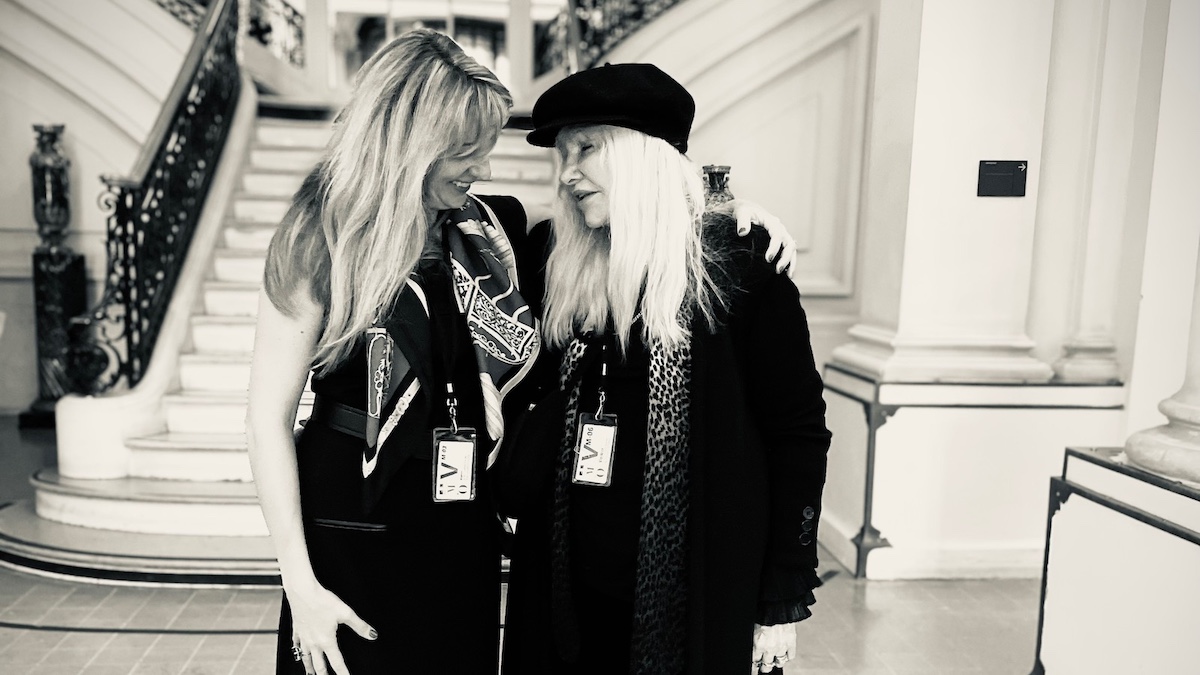
Samuel French is proud to support the August Wilson Monologue Competition, which was created by Kenny Leon and True Colors Theater Company in 2007 to carry on the legacy of August Wilson through the next generation of theatre artists. In 2017, the Dallas Competition expanded to include essays written about Mr. Wilson’s work. Check out the top three here.
“Your daddy wanted you to be everything he wasn’t…and at the same time he tried to make you into everything he was. I don’t know if he was right or wrong…but I do know he meant to do more good than he meant to do harm.”
Fences by August Wilson is a play surrounding the lives of an African American family in the 1950s. Fences demonstrates the struggles of power, love, trust and acceptance that are magnified by the characters’ similarity to true life situations and problems. August Wilson creates a family that is unbelievable yet relatable in both the 1950s and in modern time.
Fences takes place during a time when the fight for civil rights started to become a main focus of the American people. In 1954, the Brown v. Board of Education case fought to prove that separate educational facilities were indeed unequal. The conclusion of Brown v. Board was initially the decision that destroyed the foundation that state-sponsored segregation stood upon. Fences proves that at this time when African Americans were hungry for knowledge, privileges and rights, their work ethic and an advanced masculine structure would give them a leg up. Though when it came to jobs, they were often worked harder and paid less, making it hard for African American parents to obtain a steady income worry free. We see such a case with Cory’s father Troy.
As a result of the unfair workloads and low wages, parents were beginning to bring home stress that had accumulated at work and take it out on their children or on each other. This sort of behavior pushed and pulled families apart, resulting in family members creating barriers, or fences, between them. Parents began to be overbearing and controlling in fear of their child’s safety from the racism that still lurked within the streets. Wilson indicates this family struggle most with Troy and his son Cory.
Troy builds a fence around his house and verbally states to the devil that he is to stay on the opposite side of the fence, because what lies within is his property. I feel as though Troy also has a fence that he has built around himself. Above all, I think Troy uses the hate and anger from his past failures to serve as the boarding to his fence, keeping him from feeling any more pain but also blocking out the care his family tries to give him.
I see myself in Cory just as much as Troy reminds me a lot of my very own biological father. He works hard for his family and takes care of his obligations, though he lacks the ability to be emotional and open up to his family. My father was a star in high school and quite the ladies’ man, just like Troy. However, he couldn’t keep his head on straight enough to graduate from high school and ended up dropping out. It seemed as though every time life began to get the best of my biological dad I had no place in his life. As for my mother and my sister, I felt as though I was always the servant. Of course the basic fundamentals of family were there. They fed me, clothed me and oftentimes acknowledged my presence and heard me but never listened. It was as if they were only sort of paying attention, enough to reply but not comprehend. I failed my classes miserably and got into fights, and grew a reputation as the kid no one wanted to be around and no teacher wanted in their class.
Suddenly I found myself in the hands of the Kennedy family, a couple that did not have children of their own. Over time, they began to love me and care for me as if I was their own child. My grades began to skyrocket and I evolved into the teacher’s favorite and one of the popular kids in school. The Kennedys were to me as Mr. Stawicki and Coach Zellman are to Cory. They helped Cory get recruitments for football, gave him words of advice and even at one point Stawicki holds his job for Cory to continue chasing after his career in football. These are the type of things that the Kennedys did and still do for me. However, my mother, sister and father found fault in that. Just recently I had to stand up to my biological mother and sister after years of them beating me down about being “chocolate” and trying to make me believe that nothing the Kennedy family did would change my destiny. They seem to think that I can’t survive at a four-year university because they couldn’t. Like Troy, they are lost in both their fear of me experiencing the pain of such failures, and the thought that I can do something better than them. Though it is so late in their lives that, like Troy, they would rather fight with anger than surrender with love and acceptance.
For Troy, the term “fences” was his wall of failures and self-doubts; for Rose it’s the bridge of trust between her and Troy. For me it’s my biological parents and their overbearing pressure to try and make me believe that just because I am African American I cannot and will not achieve my goals and dreams. I do not feel that they believed in me six years ago, and I feel as though they did the least to help me succeed in life. However, I do understand that they meant well. They did love me, so I thought, and I believe they just didn’t understand how to show their love. And so I do forgive them, because they meant well, but meaning well is not enough. I count my blessings every day that I was placed into a theatre class with Mrs. Kennedy and that between her and her husband they have pushed me to be a better man than anyone in my biological family ever did. The family that has been created between myself and the Kennedys is what finally tore down all the fences I had put up to block myself from the world my biological family never cared to protect me from. And for this I will be forever thankful.

Noël Coward’s Travels

Kate Chopin in New Orleans: Mother-Daughter Author Duo Collaborate on Historical Book

